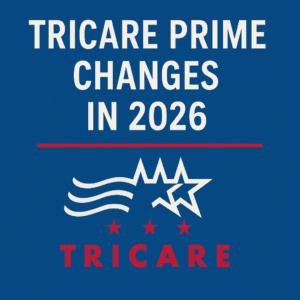Navigating the world of Medicare can feel overwhelming, especially with the variety of plans and options available. One lesser-known yet valuable option for some beneficiaries is the Medicare Cost Plan. Understanding what a Medicare Cost Plan is, how it works, and whether you’re eligible can help you make well-informed decisions about your healthcare coverage. In this article, we’ll break down the basics of Medicare Cost Plans and highlight the key features and eligibility requirements you need to know.
What Are Medicare Cost Plans and How Do They Work?
Medicare Cost Plans are a type of Medicare health plan available in certain parts of the United States. They combine aspects of both Original Medicare and Medicare Advantage, offering a flexible coverage option. These plans are offered by private insurance companies that contract with Medicare and provide coverage for Part A (Hospital Insurance) and Part B (Medical Insurance) services. Unlike some other Medicare options, Cost Plans allow beneficiaries to receive care both in-network and out-of-network, giving users more flexibility in choosing healthcare providers.
When you join a Medicare Cost Plan, you can use the plan’s network of providers to receive covered services, often at lower out-of-pocket costs. However, if you choose to see a provider outside of the network, the services are still covered under Original Medicare, and you pay the standard Medicare coinsurance and deductibles. This makes Cost Plans particularly appealing to those who want the structure and potential savings of a managed plan but also value the freedom to see any Medicare-approved provider.
It’s important to note that not all areas offer Medicare Cost Plans, as their availability depends on private insurance companies and local demand. These plans are less common than Medicare Advantage plans and are generally found in specific regions, often in states like Minnesota, where they have a long history of use. If you’re considering this option, it’s crucial to check whether Cost Plans are available in your area and to compare them with other Medicare options to see which best fits your needs.
Key Features and Eligibility Criteria for Cost Plans
One of the primary features that set Medicare Cost Plans apart from other Medicare options is their hybrid model of coverage. Participants can take advantage of network savings but aren’t restricted to in-network providers, which is ideal for beneficiaries who travel often or require specialized care not available within the plan network. Additionally, if a Cost Plan offers prescription drug coverage, members can join that plan or opt for a separate Medicare Part D plan for prescription drugs, adding another layer of customization.
Eligibility for Medicare Cost Plans generally requires that you have Medicare Part B coverage. In some cases, you may also need to have Medicare Part A, depending on the specific rules of the plan and your region. Unlike Medicare Advantage, you can usually join a Cost Plan even if you only have Part B. However, you must live in the plan’s service area, and the plan must be accepting new members at the time you want to enroll. Special enrollment periods may apply if you move out of the area served by your plan.
Another key aspect involves how you transition into and out of a Medicare Cost Plan. If you decide to leave a Cost Plan, you can return to Original Medicare at any time, and you may also be able to purchase a Medigap policy without medical underwriting in certain circumstances. This flexibility makes Cost Plans an attractive option for many, as they offer the possibility to adjust your coverage as your healthcare needs change over time.
Medicare Cost Plans offer a unique blend of flexibility and coverage that can benefit certain Medicare beneficiaries, especially those who desire freedom in choosing providers while still enjoying the protections and potential savings of managed care. Understanding the features, eligibility requirements, and how these plans operate in your region is essential before making a decision. By exploring all of your Medicare options, you’ll be better equipped to choose the coverage that best supports your health and lifestyle needs.








